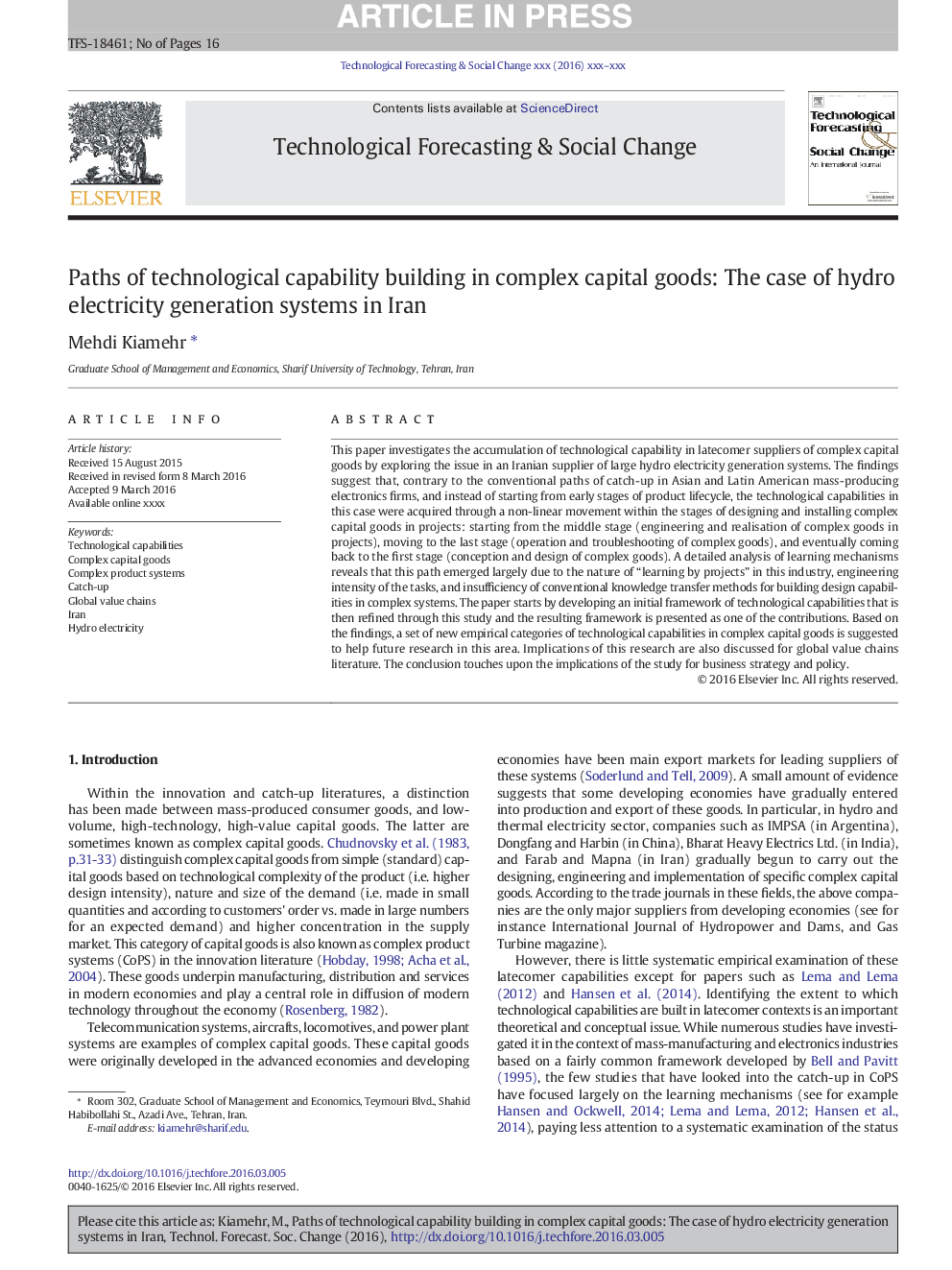ترجمه فارسی عنوان مقاله
مسیرهای توسعه توانایی های تکنولوژیکی در کالاهای پیچیده سرمایه: مورد سیستم های تولید برق آبی در ایران
عنوان انگلیسی
Paths of technological capability building in complex capital goods: The case of hydro electricity generation systems in Iran
| کد مقاله | سال انتشار | تعداد صفحات مقاله انگلیسی |
|---|---|---|
| 135785 | 2017 | 16 صفحه PDF |
منبع

Publisher : Elsevier - Science Direct (الزویر - ساینس دایرکت)
Journal : Technological Forecasting and Social Change, Volume 122, September 2017, Pages 215-230
ترجمه کلمات کلیدی
قابلیت های تکنولوژیکی کالاهای سرمایه ای پیچیده، سیستم های پیچیده محصول، گرفتن زنجیره ارزش جهانی، ایران، الکتریکی هیدرولیکی،
کلمات کلیدی انگلیسی
Technological capabilities; Complex capital goods; Complex product systems; Catch-up; Global value chains; Iran; Hydro electricity;

